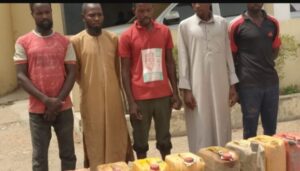The International Organisation for Migration (IOM) has sealed a humanitarian deal with the Government of Ethiopia. They have signed a Memorandum of Understanding (MoU) to strengthen return and reintegration assistance to thousands of Ethiopian migrants returning home due to COVID-19.
IOM, a UN migration agency is committed to the principle that humane and orderly migration benefits migrants and society.
As the leading international organisation for migration, it acts with its partners in the international community to: Assist in meeting the growing operational challenges of migration management, advance understanding of migration issues, encourage social and economic development through migration, and uphold the human dignity and well-being of migrants.
IOM’s Strategic Focus
The agency is concerned with providing secure, reliable, flexible and cost-effective services for persons who require international migration assistance; enhancing the humane and orderly management of migration and the effective respect for the human rights of migrants in accordance with international law; and offering expert advice, research, technical cooperation and operational assistance to States, intergovernmental and non-governmental organisations and other stakeholders, in order to build national capacities and facilitate international, regional and bilateral cooperation on migration matters.
It is also concerned with contributing to the economic and social development of States through research, dialogue, design and implementation of migration-related programmes aimed at maximizing migration’s benefits; supporting states, migrants and communities in addressing the challenges of irregular migration, including through research and analysis into root causes, sharing information and spreading best practices, as well as facilitating development-focused solutions; and being a primary reference point for migration information, research, best practices, data collection, compatibility and sharing.
Others include, promoting, facilitating, and supporting regional and global debate and dialogue on migration, including through the International Dialogue on Migration, so as to advance understanding of the opportunities and challenges it presents, the identification and development of effective policies for addressing those challenges and to identify comprehensive approaches and measures for advancing international cooperation.
Assist states to facilitate the integration of migrants in their new environment and to engage diasporas, including as development partners; and participate in coordinated humanitarian responses in the context of inter-agency arrangements in this field and to provide migration services in other emergency or post-crisis situations as appropriate and as relates to the needs of individuals, thereby contributing to their protection.
Undertake programmes which facilitate the voluntary return and reintegration of refugees, displaced persons, migrants and other individuals in need of international migration services, in cooperation with other relevant international organizations as appropriate, and taking into account the needs and concerns of local communities.
Assist states in the development and delivery of programmes, studies and technical expertise on combating migrant smuggling and trafficking in persons, in particular women and children, in a manner consistent with international law; and support the efforts of states in the area of labour migration, in particular short term movements, and other types of circular migration.
The MoU is, however, particularly crucial as the pandemic continues to deepen the already challenging economic and social situation faced by returnees.
The one million dollar project will provide cash grants and other forms of support to over 8,000 returning migrants. The grants will enable returnees to provide food, clothing and other essential items for themselves.
Nearly 34,000 migrants have returned to Ethiopia since the outbreak of COVID-19. Many have arrived with nothing other than the clothes on their backs and were in need of medical attention, and basic humanitarian items. Some were also in need of psychosocial support after having gone through traumatic experiences during their journeys.
Priority will be given to vulnerable migrants including victims of trafficking, those disabled, people with medical conditions, and single-headed households.
The agreement was signed by Maureen Achieng, Chief of Mission, IOM Ethiopia and Representative to the African Union and United Nations Economic Commission for Africa, and the country’s Labour and Social Affairs Minister, Dr. Ergogie Tesfaye.
More than 550,000 Ethiopian migrants are expected to return from Gulf countries, due to COVID-19, according to the Government, posing an enormous challenge for Ethiopia.
“Addressing their needs requires a multisectoral approach, well-designed policies, and better resource mobilization,” said Minister Tesfaye.
The new funds from the agreement will also improve ‘referral mechanisms’ that link returnees with available government assistance programmes, resources, and service providers more effectively.
“The advent of COVID-19 has resulted in additional challenges for migrants, many of whom have lost their jobs and ability to support their families through remittances,” said Maureen Achieng, Chief of Mission, IOM Ethiopia.
“To successfully support the return process, it is critical that migrants returning home have access to assistance that helps them reach a level of economic self-sufficiency, social stability, and psychosocial well-being that makes potential future migration decisions a matter of choice rather than a desperate necessity,”
The agreement is aligned with IOM’s Regional Migrant Response Plan (2018-2020), an USD 84 million appeals launched in August to provide life-saving assistance to an estimated 235,000 vulnerable migrants in the Horn of Africa and Yemen. Under the plan, IOM and other partners have adapted alternative methods for reintegrating returnees, given the COVID-19 context.
This assistance has been made possible through the generous contribution of the US State Department’s Bureau of Population, Refugees, and Migration (PRM), the Danish International Development Agency (DANIDA), and the EU-IOM Joint Initiative for Migrant Protection and Reintegration in the Horn of Africa.







